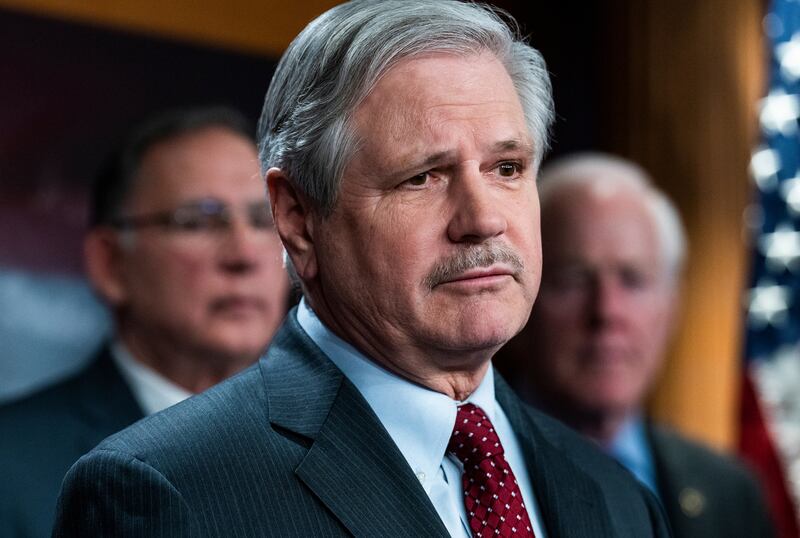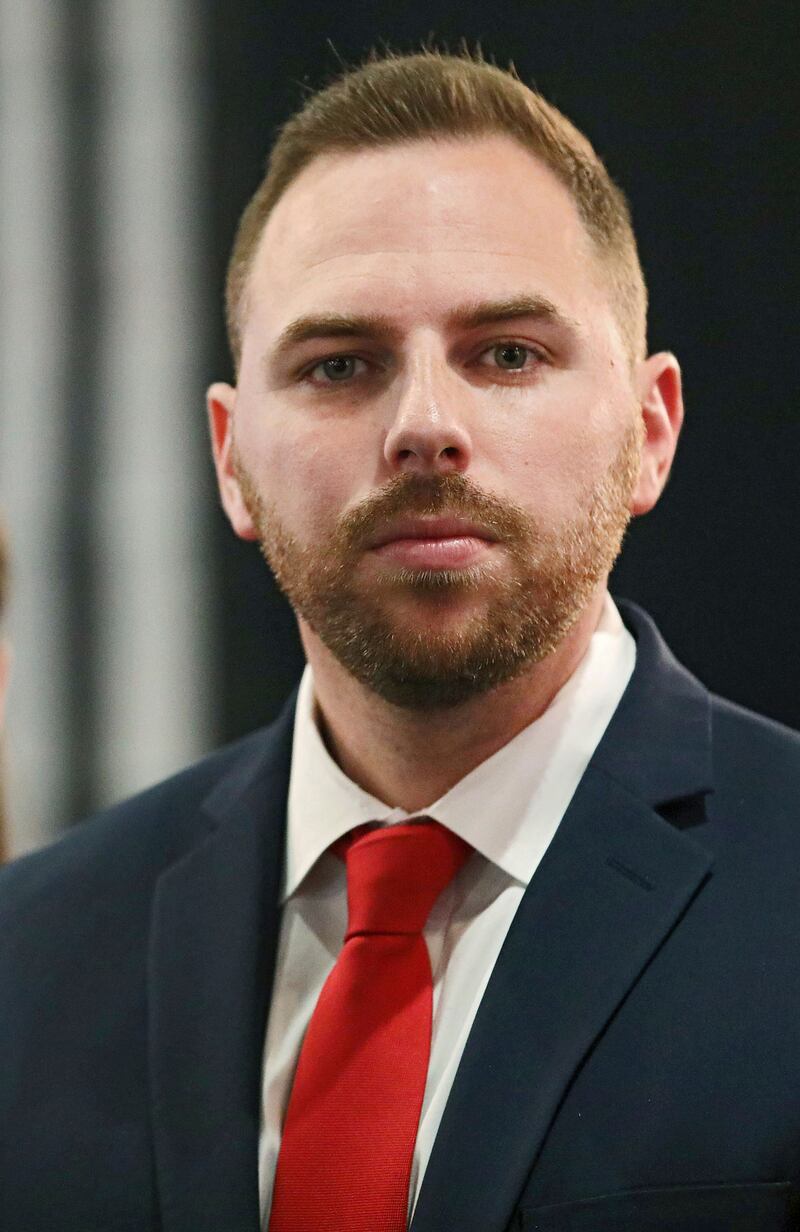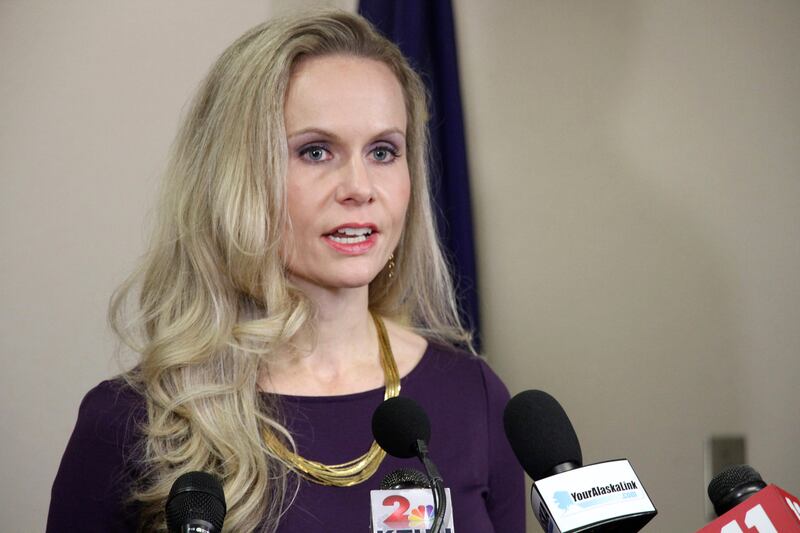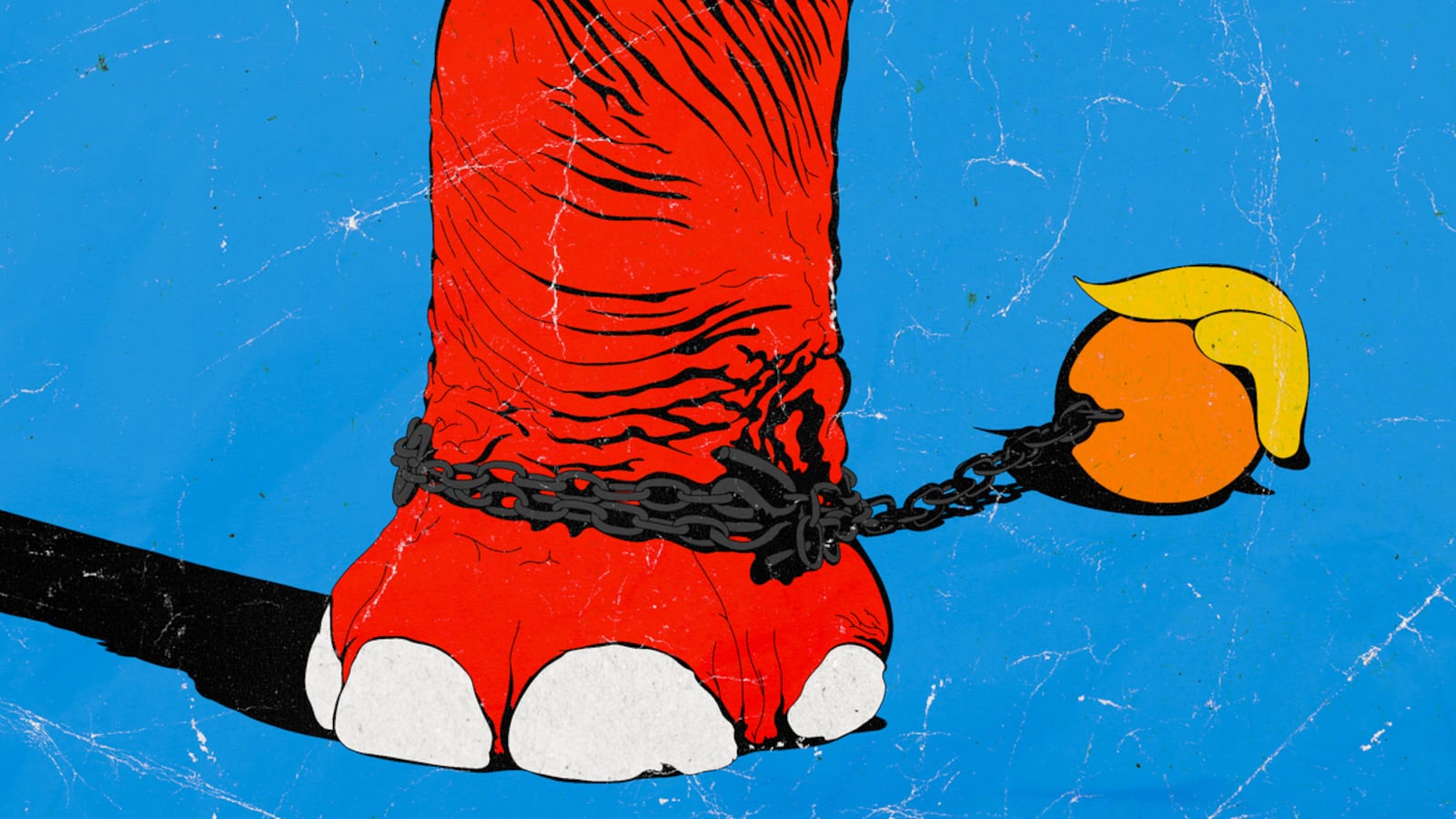The choice in North Dakota’s U.S. Senate race, according to one of the candidates, is a simple binary: a bowl of oatmeal, or an egg-avocado breakfast platter.
That metaphor was recently posted on Facebook, in meme form, by Rick Becker, a Republican state lawmaker who just launched a primary campaign to unseat Republican incumbent Sen. John Hoeven.
Neither of their names are referenced. But the suggestion is clear: Becker—a fire-breathing MAGA conservative popular with the state’s ultra-right—is meant to be the exciting, appetizing choice.
And Hoeven—a reserved two-term senator who is as likely to appear on an agriculture policy newscast as he is on Fox News—is meant to be the bland oats.
That the essence of Becker’s pitch to GOP primary voters is comparing the excitement inspired by breakfast foods is perhaps the most revealing window into what this race is really about.
In the age of Donald Trump, plenty of Republican incumbents have found themselves on the wrong side of the ex-president—and the party base he commands—for defying him, disagreeing with him, or even simply not doing enough to support him.
It’s almost impossible to claim Hoeven is guilty of any of that. Only four current GOP senators have voted with Trump more often than Hoeven, according to FiveThirtyEight.

Sen. John Hoeven
Tom Williams/CQ-Roll Call, Inc via GettyAt each of Trump’s impeachment trials, Hoeven voted to acquit the president, and he later voted to filibuster the creation of an independent commission investigating Jan. 6. The harshest statement the senator mustered after the Capitol riot was saying Trump “should not have encouraged the protest.”
In today’s GOP, however, it may not be enough for a politician to have simply not offended Trump or his supporters in order to be safe. Republicans might have to recast themselves in Trump’s belligerent and often intentionally offensive image.
Hoeven is hardly the only GOP senator under threat in this election year, as the party’s voters intensify their desire for MAGA warriors.
Of the 14 seeking re-election, a total of five are facing potentially competitive primaries from challengers taking up the America First mantle. They range from Sen. Lisa Murkowski (R-AK), a bona fide Trump critic, to Sens. Hoeven, John Boozman (R-AR), James Lankford (R-OK), and Chuck Grassley (R-IA), each of whom has done or said little to run afoul of the party base.
None of the 12 Democratic senators up for re-election, meanwhile, have to worry about sweating a real primary.

Republican senators up for re-election who are facing Republican primary challengers. From left to right: Sen. Lisa Murkowski (R-AK), Sen. John Hoeven (R-ND), Sen. John Boozman (R-AR), Sen. James Lankford (R-OK), and Sen. Chuck Grassley (R-IA)
Photo Illustration by The Daily Beast/GettySome Republicans point to the primary fever as a sign of broader GOP enthusiasm this election year, in which they are favored to regain control of Congress. In 2018, a banner year for Democrats, three of their incumbents faced serious primary challenges.
But more so than Democrats, Republican primary voters in every corner of the country increasingly crave—and are willing to elect—combative personalities who prioritize fighting the national culture wars and championing Trump on right-wing TV and social media.
That sentiment has already been reflected this year in the number of House Republicans facing MAGA-fueled primaries, as well as the unusually high number of GOP governors facing their own similar primaries. Some open-seat Senate primaries, too, have become contests over which candidate does the best Trump—or Marjorie Taylor Greene—impression.
The U.S. Senate, with its six-year terms, is generally a place where members have the space to amass power and carefully build political operations in D.C. and back home. A sitting senator hasn’t been successfully primaried in 10 years.
But in this volatile moment for the party, some Republicans caution that no one—even solidly conservative senators—can consider themselves safe.
“Given the environment, there is bound to be a surprise in one of these primaries,” said Ken Spain, a longtime Republican strategist.
“People who only run for office every six years aren’t often in fighting shape when it comes to running competitive races,” Spain continued. “It’s easy to get caught flat-footed, if you’re not running aggressively.”
That is especially the case in the specific states where these primaries are unfolding, which are among the most solidly Republican states in the country. Some of the incumbents up for re-election this year, said one operative, just don’t work their own states as if they are at real risk of losing.
In these more rural states—where TV airtime is cheap and the electorate is smaller—a challenger can get away with raising less money than an incumbent. The America First self-branding challengers have all been vastly outraised by the incumbents, but still have brought in six-figure sums heading into the election year.
Because of the deep-red hue of these states, the would-be primary contests are unlikely to alter the partisan balance of power in the evenly-split Senate. But the contests could alter the balance of power within the Republican Party.
There is, as Republican strategists like Spain note, the distinct possibility that an incumbent could lose. Short of that, in the effort to deny a challenger room to run against them, GOP senators may take on more Trumpian positions.
If primary contests come down to MAGA style over conservative substance, though, some incumbents have run proudly on the latter—for now.
Lankford, for instance, faces a challenge from the far-right Tulsa pastor Jackson Lahmeyer, who has been endorsed by the Oklahoma GOP chairman. In an interview in the Capitol on Wednesday, Lankford said the challengers are premised “not on policies” but “on volume.”
“This is a season where there are some that want to see somebody louder and yell more, because they’re angry,” Lankford continued. “I understand their frustration or anger, quite frankly, I get it. I just don’t think yelling at people solves anything.”

Pastor Jackson Lahmeyer, who is challenging Sen. James Lankford (R-OK)
Mike Simons/Tulsa World via APPressed on the issues at play in his race—where a MAGA-aligned ex-football star named Jake Bequette is mounting a primary—Boozman demurred, instead talking up his office’s constituent services work.
“I don’t know why he’s running,” the low-key Arkansas senator ultimately said of Bequette.
But most senators are taking the challenges seriously. And there is evidence for that.
Although it is early in the election cycle, Lankford has already bankrolled TV ads in Oklahoma. Last week, Boozman put TV ads up in Arkansas too, after a mysterious super PAC dropped nearly $1 million on ads supporting Bequette.
Beyond that, Grassley—who may be the only incumbent looking past the primary to a remotely competitive race against a Democrat—is running ads on Facebook and raising money for his campaign. So is Murkowski. Hoeven appears to be the only candidate who has not placed any TV or online ads yet.
Asked about the incumbent challenges, Sen. Rick Scott (R-FL), the chairman of the Senate GOP’s official campaign arm, downplayed the threats, calling them “part of the process.”
“The incumbents are all going to win,” Scott said.
According to Spain, some of the challenges are so flimsy that they “border on the absurd.”
“A lot of these incumbent senators have done a really good job when it comes to their policy records,” Spain said, “but the question that seems to be on the mind of Republican voters is how heavily you are engaged in the culture war.”
Indeed, the challengers are, to a tee, neck-deep in the culture war. In Oklahoma, for instance, Lahmeyer has made the COVID-skeptic rally circuit into a staple of his campaign. Bequette’s Twitter feed is also full of stock right-wing media talking points on masking and vaccines.
On the “issues” section of his website, Becker, the North Dakota Republican, has “COVID tyranny” and “Progressive Coercion (CRT, BLM, Genderism)” listed along with “Energy and Environment” and “Immigration.”
More important for these challengers is outdoing incumbents with almost comical levels of fealty to Donald Trump.
Kelly Tshibaka, who is challenging Murkowski, might be the only challenger with a real case on that front. The Alaska senator has long bucked the GOP establishment, and Trump, having voted to convict him in his second impeachment trial.

Kelly Tshibaka, who is challenging Sen. Lisa Murkowski (R-AK)
AP Photo/Mark Thiessen FileThe others, however, are largely grasping at straws. Lahmeyer launched his campaign against Lankford because the senator initially planned to object to certifying Joe Biden’s electoral votes on Jan. 6 and then voted to do so after the riot—along with nearly every other GOP senator.
The super PAC ads supporting Bequette in Arkansas claim that “too many Republicans are too weak to stop” Democrats, and show an image of Boozman with the phrase “RINO Republican” over it. The ads have never explained why, however, Boozman is a “Republican in name only.”
Jim Carlin, the Iowa state senator challenging Grassley, has made the 88-year old incumbent’s long tenure in office part of his case to unseat him. But he has also accused Grassley of not doing enough to get to the bottom of the nonexistent election fraud conspiracy of 2020.
"People we relied on to tell us the truth let us down by not seeking the truth," Carlin said in a speech in February 2021, after he launched his campaign.
There is perhaps some method to that madness. Any GOP candidate knows that an endorsement from Trump can be a game-changer, whether that’s to quash a primary or to make a real challenge possible.
So far, Trump has endorsed Tshibaka in Alaska, which sets up a major proxy battle between MAGA world and Senate Minority Leader Mitch McConnell (R-KY), who is staunchly backing Murkowski. The ex-president also endorsed Boozman in March 2021, though that was before Bequette got in the race.
A close ally of Trump’s, Sen. Kevin Cramer (R-ND), told The Daily Beast on Wednesday he spoke with the ex-president recently about the 2022 picture. Cramer expects Trump will back “most” incumbents. “These are people that worked with him and helped him and in his agenda,” he said.
But Cramer did add that Trump “likes the fighters” and “has some admiration for people who stick their heads out of the foxhole.”
“That personality trait,” Cramer said, “is something that a lot of people want in the rest of us.”





